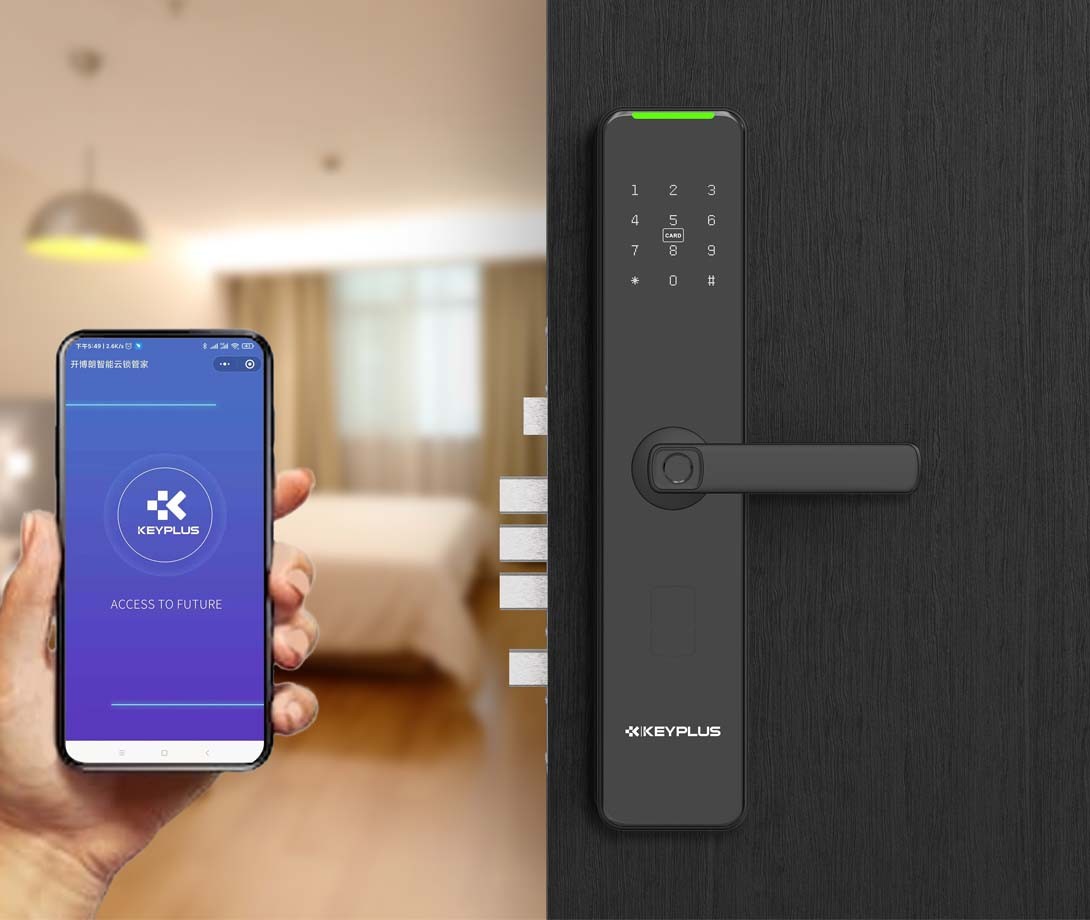How Safe Are Wi-Fi Door Locks?
Smart door locks have become increasingly popular as homeowners seek convenience and enhanced security. Among the different types of smart locks, Wi-Fi-enabled door locks offer remote access, real-time alerts, and seamless integration with smart home systems. However, many people wonder: Are Wi-Fi door locks really safe?
This article explores the security risks, benefits, and best practices for using Wi-Fi smart locks to help you make an informed decision.
1. How Do Wi-Fi Smart Locks Work?
Unlike Bluetooth-only smart locks, Wi-Fi-enabled locks connect directly to your home network, allowing you to:
- Lock/unlock doors remotely from anywhere via an app
- Receive instant notifications when someone enters or exits
- Integrate with smart home systems (e.g., Alexa, Google Home, Apple HomeKit)
- Grant temporary access to guests or service providers
Because they rely on Wi-Fi, these locks require a stable internet connection and proper security settings to function safely.
2. Security Benefits of Wi-Fi Smart Locks
Wi-Fi smart locks offer several security advantages over traditional locks:
A. No Physical Keys Needed (Reduced Risk of Lock Picking or Copying)
- Eliminates the risk of lost, stolen, or copied keys
- Some models have keyless entry via PIN codes, fingerprints, or mobile apps
B. Real-Time Alerts & Activity Logs
- Get notifications when the door is locked/unlocked
- Track who enters and exits with digital access logs
C. Remote Locking in Case of Emergencies
- Forgot to lock the door? Secure it from your phone
- Quickly revoke access for guests or workers
D. Advanced Encryption & Authentication
- Most reputable Wi-Fi locks use AES 128-bit or 256-bit encryption
- Some support two-factor authentication (2FA) for added security
3. Potential Security Risks of Wi-Fi Smart Locks
Despite their benefits, Wi-Fi smart locks can have vulnerabilities:
A. Hacking & Cyber Attacks
- Weak encryption or poor password security can make locks susceptible to man-in-the-middle attacks or brute-force hacking
- Some early models had vulnerabilities that allowed hackers to intercept signals
B. Wi-Fi Network Vulnerabilities
- If your home Wi-Fi is unsecured, hackers could potentially gain access
- Public Wi-Fi use (when controlling locks remotely) can be risky
C. Firmware & Software Exploits
- Outdated firmware may have unpatched security flaws
- Some low-quality locks lack regular security updates
D. Power or Internet Outages
- If the Wi-Fi goes down, remote access may be disabled
- Battery failure could lock you out unless there’s a backup key
4. How to Secure Your Wi-Fi Smart Lock
To maximize safety, follow these best practices:
A. Secure Your Home Wi-Fi Network
- Use WPA3 encryption (or at least WPA2)
- Change the default router password
- Enable a strong firewall
B. Use Strong Authentication Methods
- Enable two-factor authentication (2FA) if available
- Avoid simple PINs (use 6+ digit codes or biometrics)
C. Keep Firmware & Apps Updated
- Install security patches as soon as they’re released
- Disable auto-unlock features if they’re not needed
D. Monitor Access & Permissions
- Regularly check access logs for unauthorized entries
- Remove old or unused guest codes
E. Have a Backup Entry Method
- Keep a physical key as a backup
- Ensure the lock has a low-battery warning
5. Are Wi-Fi Smart Locks Safer Than Traditional Locks?
| Feature | Traditional Locks | Wi-Fi Smart Locks |
|---|---|---|
| Lock Picking Risk | High (if low-quality) | Low (no physical key required in some models) |
| Remote Access | No | Yes |
| Access Tracking | No | Yes (digital logs) |
| Hacking Risk | None (physical only) | Possible (if poorly secured) |
| Convenience | Requires keys | Keyless options available |
Conclusion: Wi-Fi smart locks are generally more secure than traditional locks if properly configured. However, they introduce cybersecurity risks that must be managed.
6. Future of Wi-Fi Smart Lock Security
New technologies are improving smart lock safety:
- Blockchain-based authentication for tamper-proof access logs
- AI-powered intrusion detection (recognizing forced entry attempts)
- End-to-end encrypted communication between lock and app
- Biometric advancements (vein recognition, facial unlock)
As security improves, Wi-Fi smart locks will become even more reliable.
Final Verdict: Should You Use a Wi-Fi Smart Lock?
Yes, if you:
- Want remote access and smart home integration
- Are willing to follow security best practices
- Choose a reputable lock with strong encryption
No, if you:
- Have weak Wi-Fi security
- Prefer a completely offline solution
- Are concerned about potential hacking risks
Bottom Line
Wi-Fi smart locks offer great convenience and enhanced security features, but their safety depends on proper setup and maintenance. By securing your network, enabling strong authentication, and keeping firmware updated, you can minimize risks and enjoy keyless living with confidence.
Would you trust a Wi-Fi smart lock for your home? Let us know in the comments!
Post time: Jun-21-2025


